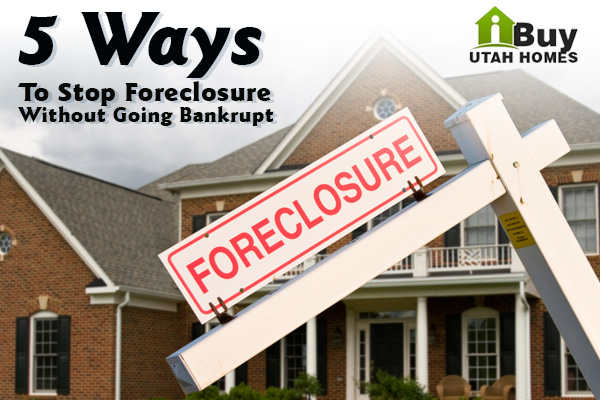When you are facing mortgage payment problems, we usually find ourselves in a dilemma of trying to choose the best option. Should you choose bankruptcy or foreclosure? Neither option is attractive. Each option bears drawbacks. Factors that may affect your decision include:
- Severity of the foreclosure
- The credit report
- Consequences of bankruptcy
- The number of mortgage payments
- Whether the lender may allow proper negotiations
-
Negotiate with Lender
There is always a way of getting back and saving your home when one is facing foreclosure. The extent to which you can reach your negotiations with the lender is determined by various factors, particularly your financial outlook and how soon you will face the foreclosure. The federal trade commission states that your lender may approve you for a mortgage payment reduction or suspension, such as forbearance and deferral.
Ask your lender about a deed or a short sale when facing foreclosure, particularly if your financial state is poor, and you have not met the qualifications for a modification or deferral. You should ensure that your financial situation during the assistance period improves. Improvement in your financial position shall hinder you from facing disclosure. -
Applying for a Loan Modification
A loan modification happens to be the ultimate option for the millions of Americans who are facing the risk of foreclosure and losing their homes. The success of your request for loan modification shall depend on the way you execute your application. Therefore, it is advisable that one consults housing counselors who have helped various troubled homeowners in getting fair, and sustainable loan workouts.
-
Government Refinance Program
You may refinance your home if you are unable to acquire traditional refinancing while you aren’t behind on the payment of your mortgage. You can refinance through HARP (Home Affordable Refinance Program). Harp is designed to make you get a more stable, affordable, and new mortgage. The Harp refinance program requires an underwriting process, loan application and refinance fees. To be eligible to HARP, you must meet the following requirements:
- The mortgage must be under the ownership of Fannie Mae or Freddie Mac
- This should be the first time that the mortgage is being refinanced
- The present loan-to-value ratio should exceed 80%
- During the time of refinancing, the borrower must have a reputable payment history within the last one month.
-
Rent Out Your home
You could account for your mortgage and avoid foreclosure by renting out your home. Renting out your home turns to be more convenient when you can find a place where you can afford or when your home would bring more income compared to the mortgage payment. Though it`s a complicated endeavor, renting out your home could be an option worth pursuing to avoid foreclosure. Advance preparations should be made for rental income to be included in the mortgage application (Leonard, 2009).
-
Sell Your Utah Home
When home equity credit lines or mortgage payments become severely in default, foreclosure on such homes can be done. Every homeowner is afraid of facing foreclosure. As one faces foreclosure, he/she is usually in the danger of losing their money. When you realize that you don’t have any other means to avoid foreclosure, recovering your equity becomes an essential factor. One way of preserving the equity in a house is selling the home quickly depending on the closeness to the foreclosure. Foreclosure would mean that the lenders assume full ownership of your home due to non-payment of any loans. Therefore, one would lose all the money they had invested in their home. Therefore, selling your home will help you escape the danger of losing it after facing foreclosure.
Reference
Leonard, R. (2009). Solve your money troubles: debt, credit & bankruptcy. Berkley CA: Nolo Press.









